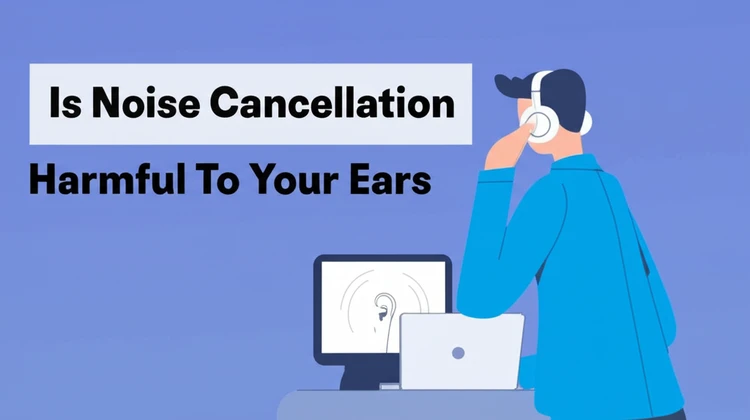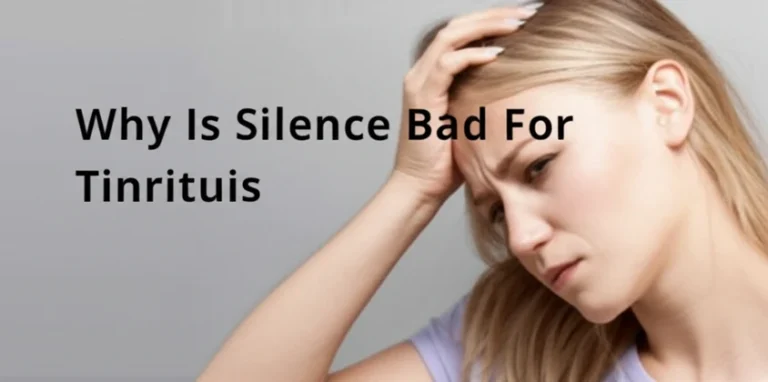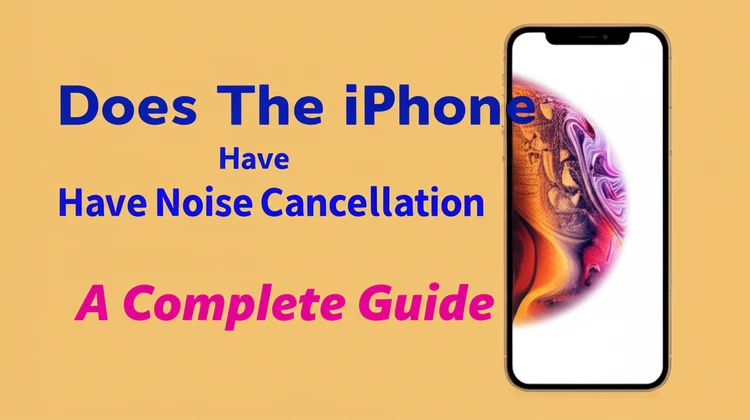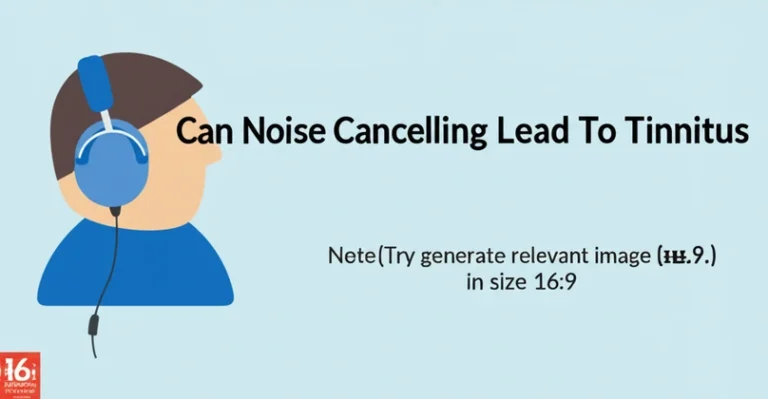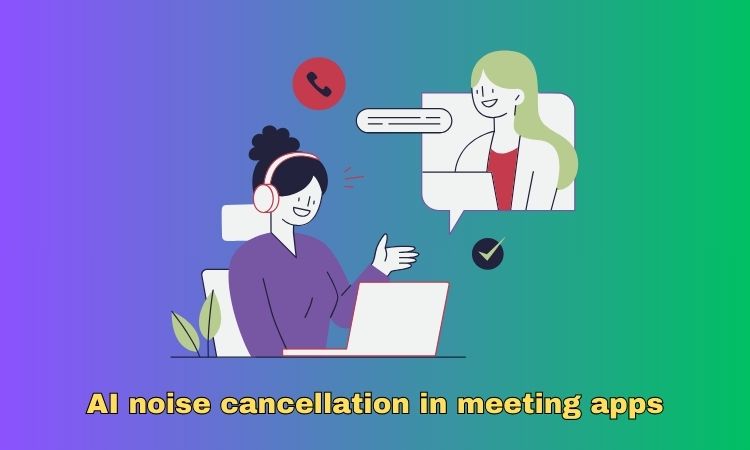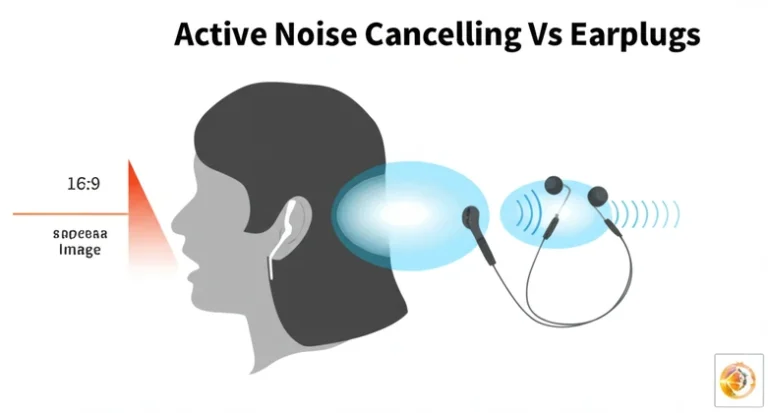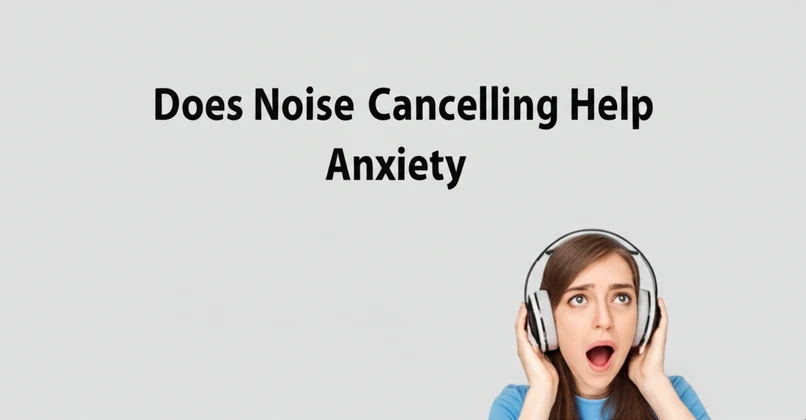
Noise-cancelling headphones can reduce environmental stressors and create a calming space, helping to manage anxiety.
Imagine the relief of escaping a chaotic environment where every sound heightens your anxiety. For many, noise-cancelling headphones offer a way to find peace in the midst of auditory chaos. But can these devices truly help alleviate anxiety? Let’s explore how noise-cancelling technology can contribute to managing stress and creating calm.
What Is Noise Cancelling?
Noise cancelling is a technology designed to reduce or eliminate unwanted ambient sounds, offering users a quieter listening experience. This can be achieved through two primary methods:
Active Noise Cancelling (ANC)
ANC uses microphones to detect external noise and generates sound waves to counteract it. This approach is particularly effective for consistent, low-frequency noises such as:
- Airplane engines
- HVAC systems
- Traffic hums
By neutralizing these sounds, ANC creates a quieter environment for the user.
Passive Noise Isolation
Passive noise isolation relies on physical barriers, like padded earcups or snug ear tips, to block external sounds. While less advanced than ANC, it’s highly effective for higher-frequency and unpredictable noises.
How These Methods Relate to Anxiety
Both ANC and passive isolation can significantly reduce the auditory overload that exacerbates anxiety. By filtering out disruptive sounds, these technologies help users maintain focus, relax, or sleep more soundly.
The Connection Between Noise and Anxiety
Noise is more than an inconvenience; it’s a proven trigger for stress and anxiety. Here’s how sound impacts mental health:
How Noise Elevates Anxiety
- Increased Stress Hormones: Chronic exposure to loud or disruptive noises elevates cortisol levels, the body’s primary stress hormone.
- Disrupted Sleep Patterns: Noise can interrupt deep sleep cycles, leaving individuals feeling fatigued and more prone to anxiety.
- Cognitive Overload: Inconsistent or jarring noises hinder concentration, exacerbating feelings of overwhelm and tension.
The Role of Silence in Mental Health
Silence offers a counterbalance to the stress caused by noise. Studies have shown that quiet environments can:
- Lower blood pressure
- Reduce heart rate
- Promote relaxation and mindfulness
Noise-cancelling headphones mimic this effect by creating an auditory oasis wherever you are.
Benefits of Noise Cancelling for Anxiety
Using noise-cancelling headphones can help manage anxiety in several ways. Here are some of the most significant benefits:
Creates a Safe Space
For individuals with anxiety, certain noises can feel invasive or even threatening. Noise cancellation eliminates these triggers, allowing users to regain a sense of control over their environment. This safe auditory space is especially helpful in:
- Crowded coffee shops
- Open-plan offices
- Noisy public transportation
Enhances Sleep Quality
Sleep and anxiety are closely linked. Poor sleep exacerbates anxiety symptoms, while persistent worry can disrupt rest. Noise-cancelling headphones help by:
- Blocking out street noise, snoring, or other nighttime disruptions
- Enabling users to listen to calming sounds or guided meditations
By promoting uninterrupted sleep, these devices contribute to overall mental well-being. More information on sleeping with noise-cancelling headphones can be found here.
Improves Focus and Productivity
For individuals prone to anxiety, noisy environments can make it nearly impossible to concentrate. Noise-cancelling technology:
- Drowns out background chatter and mechanical hums
- Creates a focused environment for work or study
This improved focus reduces stress and enhances productivity, contributing to a calmer state of mind.
Real-Life Experiences: Noise Cancelling and Anxiety Relief
Case Study 1: Student Managing Exam Stress
A college student with anxiety found it difficult to concentrate in a noisy dormitory. By using noise-cancelling headphones, they were able to block out distractions and focus on studying. This led to improved academic performance and reduced stress levels.
Case Study 2: Frequent Traveler with Anxiety
A business traveler who experienced anxiety during flights used ANC headphones to block out the constant hum of airplane engines. The resulting calm allowed them to relax and arrive at their destination feeling refreshed.
Case Study 3: Mindfulness Practitioner
An individual practicing mindfulness found that noise-cancelling headphones enhanced their meditation sessions by eliminating environmental distractions. This deepened their relaxation and improved their overall mental health.
These stories illustrate how noise-cancelling technology can be a practical tool for managing anxiety in everyday life.
Limitations of Noise Cancelling for Anxiety
While noise-cancelling headphones can be incredibly beneficial, they’re not a one-size-fits-all solution. Here are some limitations to consider:
Not a Cure-All
While noise cancellation reduces stressors, it does not address the underlying causes of anxiety. For long-term relief, users may need to combine this tool with:
- Therapy (e.g., cognitive behavioral therapy)
- Medication
- Lifestyle changes like regular exercise and mindfulness practices
Discomfort for Some Users
Some individuals report a pressure sensation when using ANC headphones. Additionally, noise cancellation can amplify internal sounds such as breathing or a heartbeat, which might be unsettling for those with heightened sensitivity. More information on why noise-cancelling headphones may cause headaches can be found here.
Potential Over-Reliance
Dependence on noise-cancelling devices may make it difficult for users to adapt to noisy environments without them. It’s important to use these tools as part of a broader anxiety management strategy.
Expert Insights on Noise Cancelling and Anxiety
Psychologists’ Perspectives
Psychologists emphasize the importance of environmental control for individuals with anxiety. Noise-cancelling headphones are highlighted as a helpful tool to minimize external stressors, allowing individuals to focus on coping mechanisms like mindfulness or deep breathing.
Audiologists’ Recommendations
Audiologists suggest choosing high-quality headphones with adjustable settings to ensure comfort. They also advise taking regular breaks to avoid ear fatigue and encourage users to pair noise cancellation with calming audio for maximum benefits.
Tips for Using Noise-Cancelling Headphones to Manage Anxiety
Identify Your Triggers
Determine which sounds exacerbate your anxiety and prioritize eliminating them. For example:
- Use ANC headphones in crowded spaces to block out chatter.
- Play white noise to mask unpredictable sounds like barking dogs.
Create Relaxation Routines
Incorporate noise-cancelling headphones into calming rituals, such as:
- Guided meditations
- Breathing exercises
- Listening to relaxing music or nature sounds
These routines can help reset your mental state and reduce anxiety levels.
Choose the Right Headphones
When selecting noise-cancelling headphones:
- Look for models with adjustable ANC settings to customize your experience.
- Test for comfort, especially if you plan to wear them for extended periods.
- Consider battery life and portability for on-the-go use.
Balance Usage
Avoid over-reliance on noise-cancelling technology. Gradually practice coping with noisy environments to build resilience. This balance ensures that headphones remain a helpful tool rather than a necessity.
FAQ
Can Noise-Cancelling Headphones Cure Anxiety?
No, they are a tool for managing symptoms and creating a calmer environment but not a standalone cure for anxiety.
Are Noise-Cancelling Headphones Safe for Long-Term Use?
Yes, with proper volume levels and regular breaks, they are safe for extended use.
What Sounds Work Best with Noise Cancelling for Relaxation?
Soft instrumental music, white noise, or nature sounds pair well with ANC for relaxation and stress relief.
Conclusion
Noise-cancelling headphones provide an effective way to manage anxiety by reducing environmental triggers and creating a peaceful auditory space. While they’re not a cure, they complement other anxiety-reducing strategies and enhance mental well-being. Try incorporating noise-cancelling technology into your daily routine and share your experiences in the comments below!

